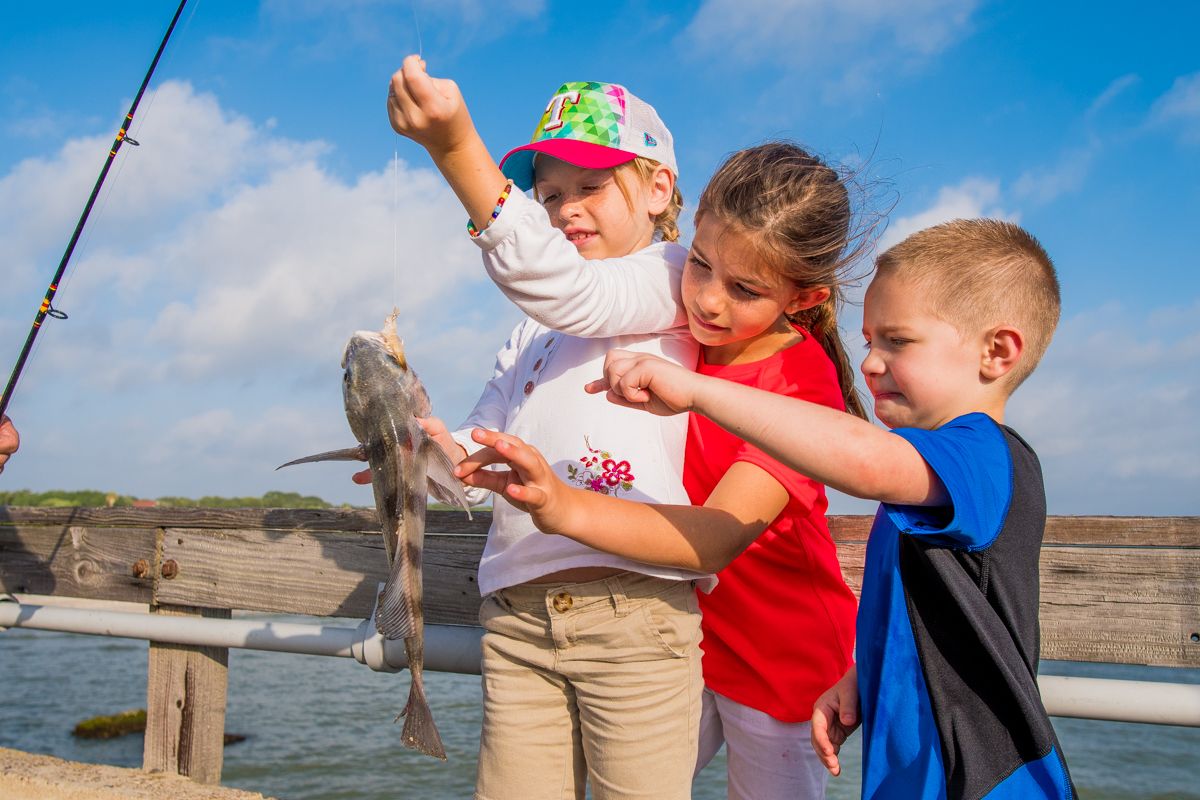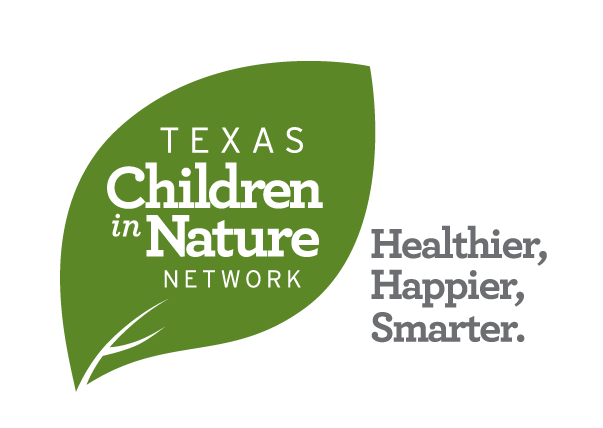
Feel More Capable and Confident
Have you ever watched children’s faces light up when they catch their first fish, or reap the first harvest from something they planted? In that moment they have done something so much more than catch a fish — they have been empowered with a skill that will help them be self-reliant.
“I enjoy watching my girls try different methods to catch a fish,” says parent Caleb Harris. “Sometimes what they try doesn’t always work, so I encourage them to try another way. We laugh a lot about some of the silly things we try. Telling their friends how they caught the fish is almost as fun for them as sharing the fact they actually caught one.”
A great way to engage teens and help them master outdoor skills is to have them share their knowledge with younger kids. The thoughtful interaction that can occur is one more step in the journey to self-reliance.
Children who spend time playing in nature are more capable, confident and have higher resilience. These are all abilities that parents want for their children.
Access to Nature Can Promote the Mental Well-being of Children
This systematic review of the literature examined the association between access to green space and the mental well-being of children. Selection criteria included original research focusing on children (0-18 years) published between 2012 and 2017. Twelve articles fitting these criteria were identified. Three additional articles – published prior to 2012 — were included in the review, as they were often cited as important early research on nature-related benefits for children.
The overall findings of this review indicate that access to natural environments can benefit children in various ways, including improvements in confidence, social interactions, cognitive development, academic achievement, and emotional well-being. The implications of this research-based evidence apply to various sectors of society, including urban planners, health practitioners, educators, and families. Specific recommendations are offered for nursing professionals with pediatric patients. Such recommendations include writing prescriptions for outdoor play, advocating for natural playspaces in the community, and collaborating with multiple disciplines and stakeholders in implementing initiatives connecting children with nature. While this review provides strong evidence of the benefits of access to nature for children, additional research addressing both benefits and barriers to green space access is needed.
- McCormick, Rachel. 2017. “Does Access to Green Space Impact the Mental Well-Being of Children: A Systematic Review.” Journal of Pediatric Nursing: Nursing Care of Children and Families 37 (November): 3–7. https://doi.org/10.1016/j.pedn.2017.08.027.
Nature-based Risky Play Can Promote Young Children’s Development
This study investigated the effects of an intervention designed to increase opportunities for young children to engage in nature-based risky play. Risky play, which offers children the thrill of uncertainty, is positively associated with physical activity, social health, and exploration and understanding of the world. A decrease in opportunities for risky play is of concern.
The study examined the effects of an intervention to increase opportunities for nature and risky play in the outdoor play environments of two childcare centres using a repeated measures mixed methods design. Assessments of children and their outdoor playspace were conducted before and after changes were made to each center’s outdoor environment. The study used the Seven Cs play space design criteria, adding natural materials to enhance affordances for play. It measured changes in play, social behaviour, psychological wellbeing, and physical activity in 45 children aged 2 to 5.
Findings indicated significant decreases in depressed affect, antisocial behaviour and moderate to vigorous physical activity, and increases in play with natural materials, independent play, and prosocial behaviours. Early Childhood Educators observed improved socialization, problem-solving, focus, self-regulation, creativity and self-confidence, and reduced stress, boredom and injury. Outdoor play spaces are important for promoting children's wellbeing and development.
- Brussoni, Mariana, Takuro Ishikawa, Sara Brunelle, and Susan Herrington. 2017. “Landscapes for Play: Effects of an Intervention to Promote Nature-Based Risky Play in Early Childhood Centres.” Journal of Environmental Psychology 54 (December): 139–50. https://doi.org/10.1016/j.jenvp.2017.11.001.
Nature Kindergarten Helps Children Discover Strength and Confidence
Initiated by a team of educators and academics, the only full-day nature kindergarten program in British Columbia started operations in September 2012 at a local elementary school. Following the model of forest schools in Scandinavian countries, the nature kindergarten provides young children with large amounts of time in natural outdoor settings where they can play, explore and experience natural systems and materials. In this paper, the creation of the nature kindergarten and the pedagogical principles on which it is based is described. The paper also illustrate children's experiences outdoors. Finally, it reports preliminary findings of research evaluating the effects of being in nature on children's nature relatedness and their environmentally responsible behavior.
Beginning in September 2012, the nature kindergarten had a class of 21 students that spent two and a half hours out in nearby natural areas each school day, regardless of the weather. A game-like assessment adapted from previous research with elementary school children was used to measure children’s nature relatedness and their environmental behaviors. The responses of the nature kindergarten students were compared to a control group of 22 children attending two elementary schools in the same community. Both sets of children were assessed at the beginning and end of the school year.
Analysis of the assessment suggests that children in the nature kindergarten were more closely related to nature than children in the regular kindergarten, with the nature-relatedness scores of the children in the nature kindergarten increasing slightly over the year while the scores of the control group declined slightly over the year. No significant differences in environmentally responsible behaviors were identified between the two groups of children. The researchers suggested that possible explanations for this result, which they deemed to be surprising, were ceiling effects in the measurement approach and the potentially longer timespan needed to show changes in behavior. The observations gathered by the researchers during the pilot year of the program provide rich insight into what is possible in this type of setting. These observations suggest that nature kindergartens foster a community of learners; promote children’s social skills, as seen in the way the children offered to support one another’s efforts; help children discover their own ideas, strengths and confidence; and nurture a deep connection to the environment, as demonstrated by the caring and concern shown by the children. The researchers emphasize that this study is supportive of the idea that “education within nature is particularly important in early childhood because direct experience with various environments facilitates the development of positive feelings and attitudes towards nature and natural phenomena.”
- Elliot, Enid, Kayla Ten Eycke, Sharon Chan, and Ulrich Müller. 2014. “Taking Kindergartners Outdoors: Documenting Their Explorations and Assessing the Impact on Their Ecological Awareness.” Children, Youth and Environments 24 (2): 102–22. https://doi.org/10.7721/chilyoutenvi.24.2.0102.
The Role of ‘Resilience’ in Relation to the Learning and Development of Young Children
In this portfolio, the researcher critically explores the role of the learning disposition ‘resilience’ in the learning and development of young children and the implications for practice and policy. This enquiry is contextualised through child observations and reflection on practice during a 12 week Forest School project in Torbay in 2010.
- Rowena Kenny - A Critical Exploration of the Role of ‘Resilience’ in Relation to the Learning and Development of Young Children; September 2010
